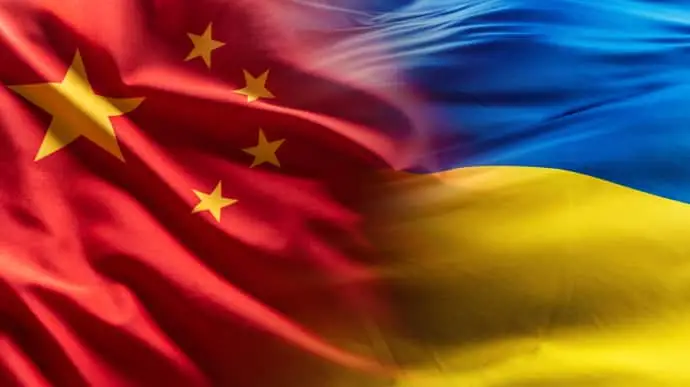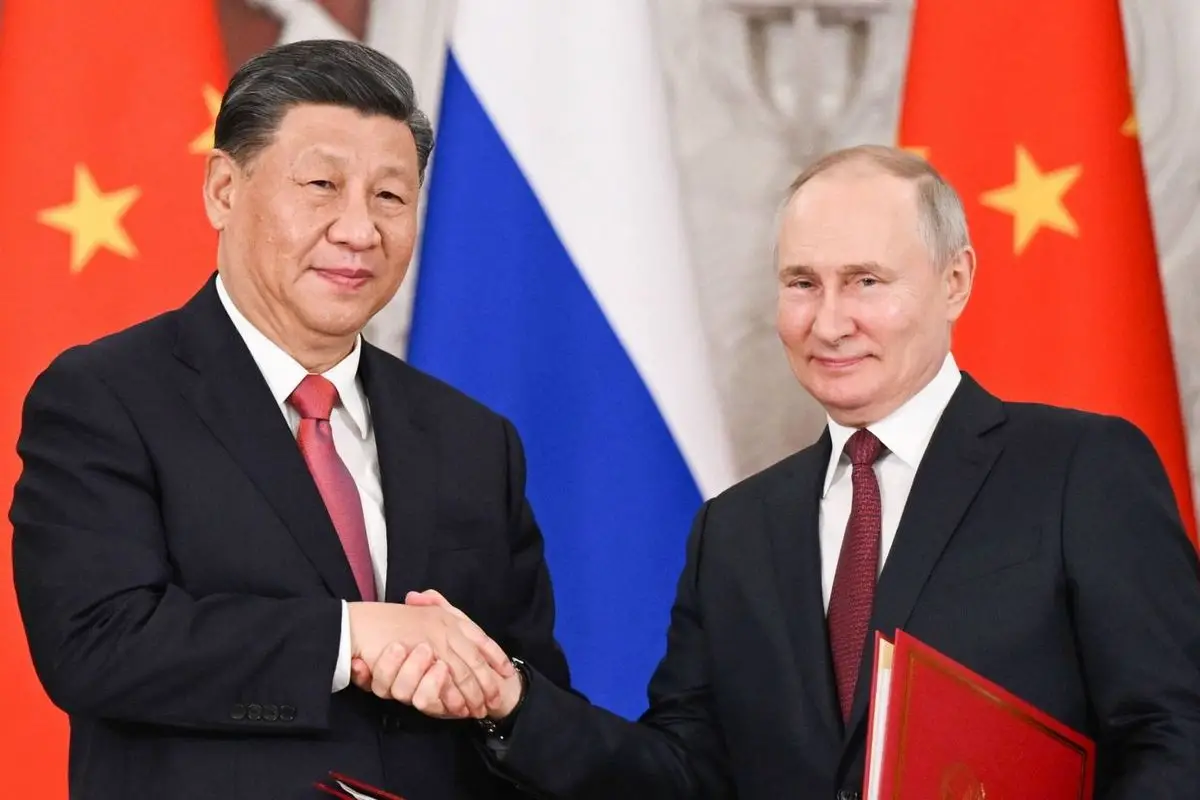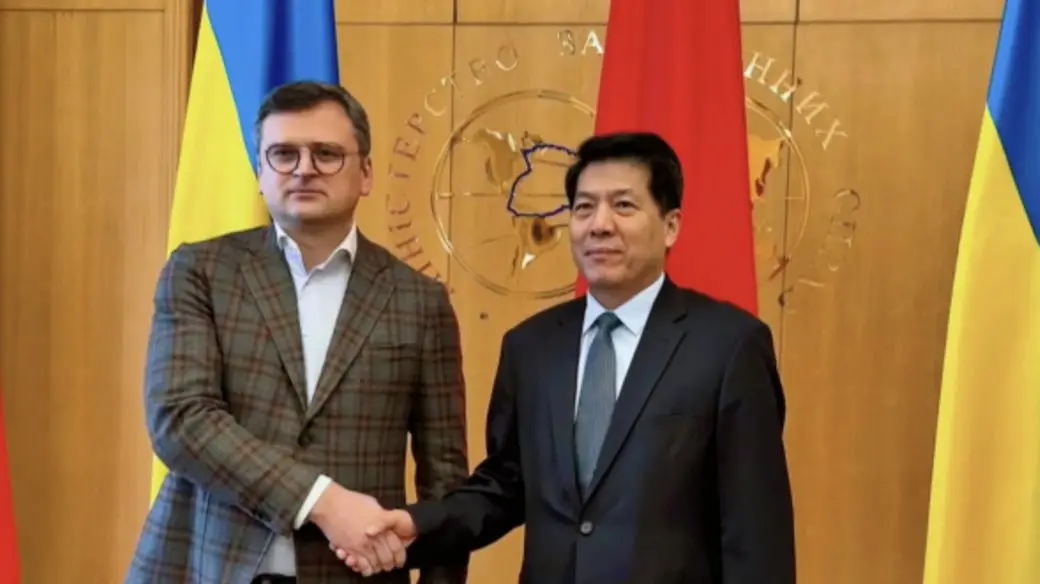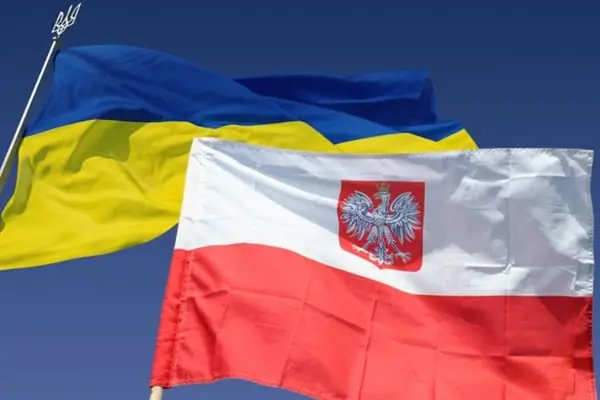The diplomatic crisis between Ukraine and China. Will the visit of the Chinese diplomat be a sign of improved relations between Kyiv and Beijing?

Relations between Kyiv and Beijing have not always been particularly warm, and after the Russian invasion of Ukraine, the two countries found themselves on opposite sides of the barricades
China has repeatedly and quite tellingly behaved quite ambiguously towards Ukraine
In May last year, Chinese authorities asked foreign embassies and international organizations in Beijing to refrain from using the exterior walls of their buildings for "political propaganda."
According to the Japanese news agency Kyodo, the request arose from signs expressing support for Ukraine posted on many embassies in Beijing. Many of them have installed signs with the Ukrainian flag and slogans such as #StandWithUkraine. The Chinese Foreign Ministry said that using external walls for political propaganda could provoke conflicts between states.
European diplomats reacted negatively to the move and emphasized the importance of free expression of state positions through external signs. The Chinese Foreign Ministry, in turn, emphasized the need for all diplomatic missions to comply with the country's laws.
Ukrainian representatives did not interact with Chinese officials during the World Economic Forum in Davos. Ukrainian leaders expressed a desire to meet with Chinese officials during the event in Switzerland, but the two countries failed to meet.
According to Politico, which cited a U.S. official, China deliberately tried to ignore meetings with Ukrainian representatives in Switzerland, and this decision may be due to pressure from russia, which is calling on China to stop diplomatic meetings with Ukraine.
Ukrainian Ambassador, Pavlo Ryabikin, who was appointed to the post during the only conversation between the Chinese and Ukrainian presidents during the full-scale war, has only secured a handful of meetings since his arrival in the Chinese capital last summer, despite sending requests to nearly 40 different ministries and municipalities.

But relations between Beijing and Moscow have always been and remain quite warm
China has not condemned russia for its full-scale invasion of Ukraine.
The Chinese authorities have refrained from making a strong statement on the war: they did not support russia when the UN voted in favor of a resolution condemning russia's invasion of Ukraine. On the other hand, China did not oppose the invasion. In addition, China has repeatedly called on the Ukrainian and russian authorities to resolve the conflict peacefully.
On the anniversary of the russian invasion of Ukraine, February 24, China published a "peace plan" for the conflict in Ukraine, calling for respect for the sovereignty of the countries, a cessation of hostilities, and the start of negotiations. They also called for an end to "unilateral sanctions". This plan contains 12 points.
On February 25, CNN reported, citing sources connected with US intelligence, that China is considering sending weapons to russia for use in the war against Ukraine.
In March, Xi Jinping visited russia, where he held official meetings with russian president vladimir putin.
igor morgulov, who was appointed by vladimir putin to the post of russian ambassador to Beijing in September 2022, called russian-Chinese relations last year "very productive." In an interview with russia's state-run rossiya-24 TV channel, he said that his embassy had facilitated 27 visits by russian officials to China at the level of federal minister and above, including the head of state, vladimir putin himself.

The real reasons for the Chinese diplomat's visit to Kyiv, moscow and the EU
The Chinese Foreign Ministry reported that on March 7, "frank and friendly" talks were held in Kyiv with the participation of Chinese special envoy Li Hui. In the evening of the same day, a briefing was held at the Presidential Office, hosted by Yermak, to discuss the security situation in Ukraine and other topical issues for the Chinese delegation led by Special Representative Li Hui.
At the briefing at the Presidential Office, the Chinese delegation received information on the situation on the battlefield, the functioning of the "grain corridor," the return of prisoners of war, the protection of the rights of civilian hostages, and the return of Ukrainian children deported by russia. In addition, representatives of Ukraine demonstrated samples of the wreckage of a downed DPRK missile.
The talks also raised questions about the possibility of China's support in stopping the forced deportation of Ukrainian children, the exchange of prisoners, demilitarization and de-occupation of the Zaporizhzhia nuclear power plant, nuclear safety and other international initiatives on the part of Ukraine.
Based on the Chinese envoy's itinerary, it can be concluded that Beijing is facing serious consequences for its position in the war. Tensions with the European Union are deepening, as the bloc has determined that trade and security issues will not be separated: Brussels has launched an investigation into Chinese electric car manufacturers, and Beijing has launched an anti-dumping investigation into EU alcoholic beverages. Brussels is considering imposing new restrictions on three Chinese companies that it believes support russia's military actions in Ukraine.
China is facing increasingly complex diplomatic relations as it tries to balance its declared "neutrality" in the russia-Ukraine war with its approach to russia. China's efforts last year to make "peace proposals" to resolve the Ukraine crisis proved ineffective, and Europe now expects Beijing to take concrete action to contain putin and participate in peace initiatives such as the Ukraine Peace Formula and the Global Peace Summit.
The deepening tensions between China and the European Union are caused by Brussels' investigation of Chinese electric vehicle manufacturers and Beijing's anti-dumping investigation of EU liquor products. There is also the threat of secondary sanctions against Chinese companies that the EU believes support russian military actions.
Nevertheless, it is difficult to ignore China's role because of its geopolitical importance and close relations with russia. China is trying to exploit the indignation and indecision of European countries over the delay of US military aid to Ukraine, directing their attention to negotiations. China's chief diplomat, Wang Yi, emphasized the need to avoid common losses and failures due to the crisis in Ukraine and called for peace talks. In this way, China hopes to reduce the pressure on its trade relations with russia through negotiations and freezing the conflict. Beijing is trying to solve the problem of "illegal unilateral sanctions" and stay out of the EU sanctions list against russia.











